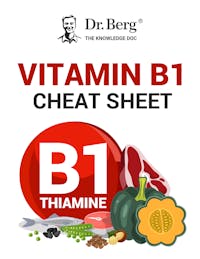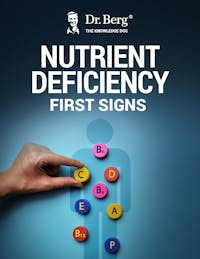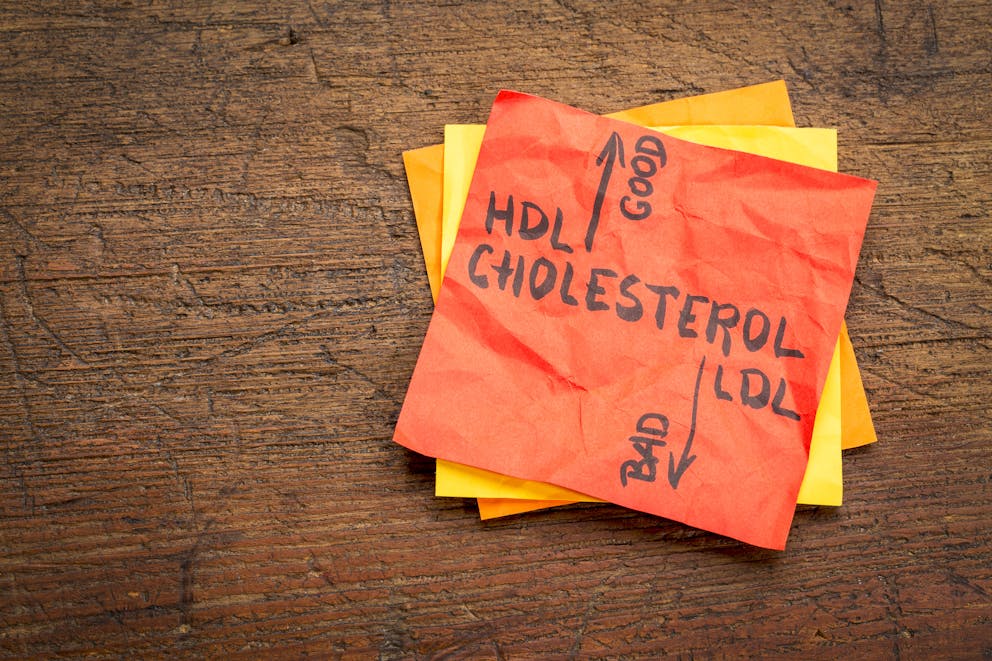Your Eyes and Nutritional Deficiencies

Vitamin B1 Cheat Sheet
Learn about the essential functions and benefits of vitamin B1
Understand the role of vitamin B1 in energy production and brain health
Recognize early signs and common causes of vitamin B1 deficiency
Discover the best dietary sources of vitamin B1
Get expert guidance on why avoiding synthetic vitamin B1 supplements is crucial

Vitamin B1 Cheat Sheet
Learn about the essential functions and benefits of vitamin B1
Understand the role of vitamin B1 in energy production and brain health
Recognize early signs and common causes of vitamin B1 deficiency
Discover the best dietary sources of vitamin B1
Get expert guidance on why avoiding synthetic vitamin B1 supplements is crucial

Vitamin B1 Cheat Sheet
Learn about the essential functions and benefits of vitamin B1
Understand the role of vitamin B1 in energy production and brain health
Recognize early signs and common causes of vitamin B1 deficiency
Discover the best dietary sources of vitamin B1
Get expert guidance on why avoiding synthetic vitamin B1 supplements is crucial

Vitamin B1 Cheat Sheet
Learn about the essential functions and benefits of vitamin B1
Understand the role of vitamin B1 in energy production and brain health
Recognize early signs and common causes of vitamin B1 deficiency
Discover the best dietary sources of vitamin B1
Get expert guidance on why avoiding synthetic vitamin B1 supplements is crucial

Vitamin B1 Cheat Sheet
Learn about the essential functions and benefits of vitamin B1
Understand the role of vitamin B1 in energy production and brain health
Recognize early signs and common causes of vitamin B1 deficiency
Discover the best dietary sources of vitamin B1
Get expert guidance on why avoiding synthetic vitamin B1 supplements is crucial

Vitamin B1 Cheat Sheet
Learn about the essential functions and benefits of vitamin B1
Understand the role of vitamin B1 in energy production and brain health
Recognize early signs and common causes of vitamin B1 deficiency
Discover the best dietary sources of vitamin B1
Get expert guidance on why avoiding synthetic vitamin B1 supplements is crucial

Vitamin B1 Cheat Sheet
Learn about the essential functions and benefits of vitamin B1
Understand the role of vitamin B1 in energy production and brain health
Recognize early signs and common causes of vitamin B1 deficiency
Discover the best dietary sources of vitamin B1
Get expert guidance on why avoiding synthetic vitamin B1 supplements is crucial

Vitamin B1 Cheat Sheet
Learn about the essential functions and benefits of vitamin B1
Understand the role of vitamin B1 in energy production and brain health
Recognize early signs and common causes of vitamin B1 deficiency
Discover the best dietary sources of vitamin B1
Get expert guidance on why avoiding synthetic vitamin B1 supplements is crucial

Vitamin B1 Cheat Sheet
Learn about the essential functions and benefits of vitamin B1
Understand the role of vitamin B1 in energy production and brain health
Recognize early signs and common causes of vitamin B1 deficiency
Discover the best dietary sources of vitamin B1
Get expert guidance on why avoiding synthetic vitamin B1 supplements is crucial

The First Signs of a Nutrient Deficiency
Learn how to recognize early symptoms related to specific nutrient deficiencies
Receive a downloadable list of early indicators your body is lacking key nutrients

The First Signs of a Nutrient Deficiency
Learn how to recognize early symptoms related to specific nutrient deficiencies
Receive a downloadable list of early indicators your body is lacking key nutrients

The First Signs of a Nutrient Deficiency
Learn how to recognize early symptoms related to specific nutrient deficiencies
Receive a downloadable list of early indicators your body is lacking key nutrients

The First Signs of a Nutrient Deficiency
Learn how to recognize early symptoms related to specific nutrient deficiencies
Receive a downloadable list of early indicators your body is lacking key nutrients

The First Signs of a Nutrient Deficiency
Learn how to recognize early symptoms related to specific nutrient deficiencies
Receive a downloadable list of early indicators your body is lacking key nutrients

The First Signs of a Nutrient Deficiency
Learn how to recognize early symptoms related to specific nutrient deficiencies
Receive a downloadable list of early indicators your body is lacking key nutrients

The First Signs of a Nutrient Deficiency
Learn how to recognize early symptoms related to specific nutrient deficiencies
Receive a downloadable list of early indicators your body is lacking key nutrients

The First Signs of a Nutrient Deficiency
Learn how to recognize early symptoms related to specific nutrient deficiencies
Receive a downloadable list of early indicators your body is lacking key nutrients

The First Signs of a Nutrient Deficiency
Learn how to recognize early symptoms related to specific nutrient deficiencies
Receive a downloadable list of early indicators your body is lacking key nutrients
It is important to be aware of signs that you might have nutritional deficiencies so you can address the issue as quickly as possible. Although people don't expect it, the eyes often show signs when the body is experiencing a nutritional deficiency.
Learn about common eye problems, how nutritional deficiencies can be linked with those issues, and what you can do to prevent them.
Understanding Eye Symptoms as Indicators of Nutritional Deficiencies
Specific eye symptoms could indicate various nutritional deficiencies. Being aware of these signs will help you better manage your deficiencies.
Recognizing Jaundice through Eye Symptoms
You might have noticed that some people's eyes or skin whites appear yellowish. Yellowish skin or whites of the eyes may be a sign of jaundice, which often signals an obstruction in the bile duct or other issues with the gallbladder.

The Link Between Bloodshot Eyes and Vitamin B2 Deficiency
Bloodshot eyes are a common issue, but did you know they could be an alarm bell for something more serious? They can often indicate a deficiency in vitamin B2 or riboflavin. Without adequate vitamin B2, our body's energy levels can be compromised.
Refined Grains and Their Impact on Vitamin B2 Levels
Eating too many refined grains might make your taste buds happy, but it does the opposite to your vitamin levels. When we overindulge in these grains, we're pushing out the good stuff, like vitamin-rich foods, which can lead to deficiencies.
Cabs from food like white bread or pasta are made from white flour, and have been stripped of their natural nutrients - including valuable riboflavin- during processing.
To maintain proper nutrition and avoid those bloodshot eyes, remember this: Less processed equals more benefits.
Choosing whole grains over refined ones provides ample necessary vitamins such as B-complex and aids overall health by supporting heart function and promoting healthy digestion.
Eye Plaque Deposits as Indicators of High Cholesterol
Have you ever noticed small, plaque-like deposits on your eye or eyelid? These might not just be an odd occurrence but could indicate high cholesterol levels. Our eyes are windows to our health; these unusual signs shouldn't be ignored.
The culprit behind these plaques is often a diet rich in unhealthy fats, which raises the level of LDL, commonly known as 'bad' cholesterol.
Plaque can accumulate in the arteries and around your eyes, a sign that shouldn't be overlooked. So, it's essential to listen when our body sends such signals.
Dietary Changes to Reduce Cholesterol Levels
Making dietary changes is one effective way to combat high cholesterol levels and thus reduce the risk of unsettling eye plaques. Switching out saturated fats for healthier alternatives like olive oil can make a significant difference.
In addition, certain supplements may offer help with this issue, too. For instance, choline, lecithin, and niacin have shown promise in reducing cholesterol levels naturally.
Cataracts and Vitamin B1 Deficiency
Regarding cataracts, characterized by an opaque whiteness obstructing vision, we can't ignore the potential role of vitamin B1 deficiency. Lacking this crucial nutrient may contribute to developing such eye conditions.
The Role of Sugar Consumption in Vitamin B1 Deficiency
Excessive sugar consumption could rob your body of vital nutrients. Specifically, too much sugar can lead to a deficiency in vitamin B1 - yes, the same one linked with cataract formation.
In addition to diet-related causes like high sugar intake, other factors such as diabetes or stress might also cause a vitamin B1 deficiency.
Blood Sugar Issues Manifested Through Eye Symptoms
Eye discomfort can often be a telltale sign of blood sugar problems. You might feel redness, irritation, or even a sandy sensation under your inner eyelid. But why is that?
Your eyes are like mirrors reflecting what's happening inside your body. Irregular blood sugar can affect the body, including the eyes, leading to styes.
Styes as Indicators of Blood Sugar Issues
If you've ever had styes, those pesky pimples on the edge of your eyelids, they could be hinting at something more than just an inconvenient infection.
A little-known fact about these tiny nuisances is their connection to our internal health conditions such as diabetes. In many cases, the frequent appearance of styes can point towards imbalanced blood sugar levels in our bodies.

Managing Stye Outbreaks and Blood Sugar Levels Naturally
To fix this problem from its root cause means managing your blood sugar effectively. It doesn't mean taking drastic measures.
Making small changes like reducing the intake of processed sugars and refined carbs while increasing lean proteins and fiber-rich foods in meals will do wonders for controlling those irritating eye symptoms and maintaining overall health balance.
Eye Twitching as a Sign of Deficiency
Eye twitching can be more than irritating; it might signal an underlying deficiency. In some cases, persistent eye twitching could indicate that your body lacks essential nutrients. Specifically, it is often an indicator of a vitamin A deficiency.
Ensuring a well-proper diet rich in key vitamins and minerals can help alleviate this issue. Identifying and addressing potential deficiencies can be a proactive step in reducing the occurrence of eye twitching and maintaining overall eye health.
Conclusion
Our eyes can serve as indicators of potential nutritional deficiencies, highlighting the importance of recognizing specific symptoms and addressing them promptly.
Jaundice, characterized by yellowish eyes or skin, may signal issues with the gallbladder or bile ducts. Bloodshot eyes can indicate a deficiency in vitamin B2, exacerbated by excessive consumption of refined grains.
Plaque deposits on the eyes may suggest high cholesterol levels, necessitating dietary changes to promote heart health. Cataracts could be linked to a deficiency in vitamin B1, worsened by excessive sugar consumption and other factors like diabetes or stress.
Eye discomfort, such as styes, may indicate blood sugar issues, emphasizing the importance of managing blood sugar levels through dietary changes. Persistent eye twitching could signal a deficiency in vitamin A, highlighting the need for a well-balanced diet rich in essential nutrients.
By recognizing these eye symptoms and addressing underlying causes, you can prevent negative effects on your health and promote overall well-being.
Previous blog
Instant Neck Stiffness ReliefNext blog
How the Cruciferous DetoxifiesTags

Popular
08/21/2024
55.7K views
02/23/2025
46.8K views
11/18/2024
281.1K views
03/18/2024
11/21/2022




